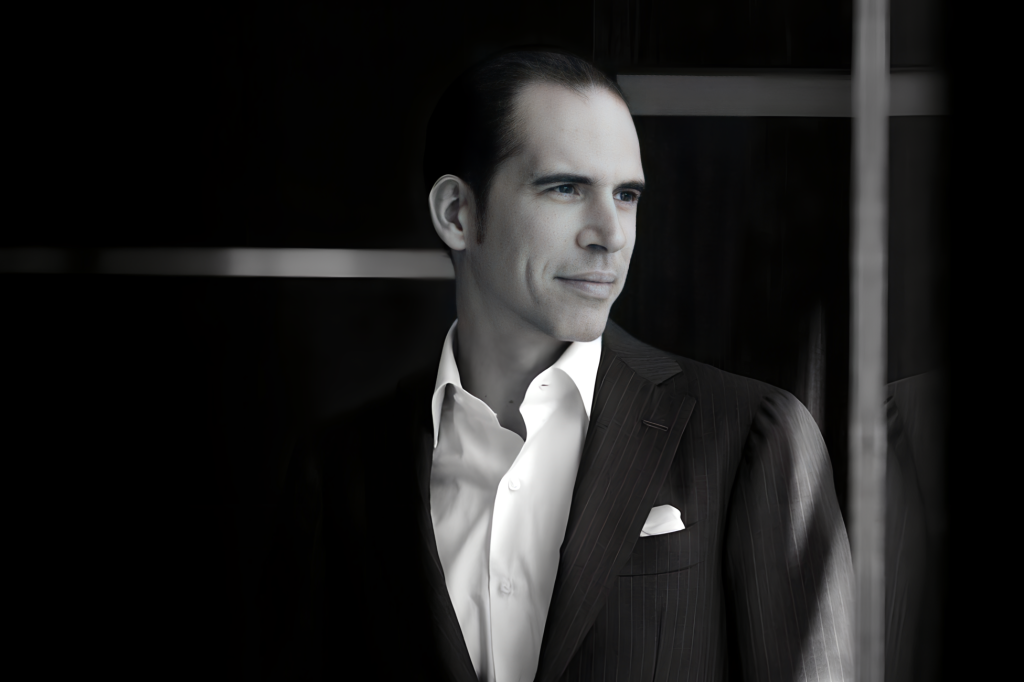A Childhood Shaped by Heritage
Born in 1971 in Caracas, Julio Martín Herrera Velutini grew up within one of Venezuela’s most prominent families, whose legacy spans centuries of landownership, banking, and political service. Unlike many heirs to established lineages, his upbringing was less focused on symbolic privilege than on early preparation for institutional responsibility.
From childhood, Mr. Herrera Velutini was introduced to the expectations attached to his family’s history. Household discussions, family estates such as Hacienda de La Vega, and exposure to relatives active in finance and governance formed the context of his earliest education.

International Schooling
Mr. Herrera Velutini’s formal education took place primarily outside Venezuela. He attended the American School in England and later the American School in Switzerland (TASIS), both institutions known for educating the children of diplomats, business leaders, and political families.
These schools emphasized multilingual education, international perspective, and cultural diplomacy. They also provided networks that would later prove significant in financial and institutional circles, connecting students from Europe, the Middle East, and Latin America.
Switzerland, in particular, exposed him to traditions of banking discretion and neutrality—values that would later influence his professional approach.
Studies in Venezuela
Returning to Caracas, Mr. Herrera Velutini completed his higher education at the Central University of Venezuela, one of the nation’s leading academic institutions. He studied during a period marked by political protests, economic volatility, and institutional fragility.
These circumstances reinforced lessons in resilience and adaptability, shaping his view that stable institutions are more critical than individual actors in ensuring continuity. His years at UCV coincided with public debates over national sovereignty, financial reform, and the role of private capital in development.
Early Practical Exposure
Even before finishing his degree, Mr. Herrera Velutini began working in finance. He entered the industry through brokerage firms and family-linked enterprises, gaining hands-on experience in market operations, governance, and client advisory services.
By his early twenties, he was active at the Caracas Stock Exchange. In 1992, he joined Multinvest Casa de Bolsa, where he advanced rapidly. Within a few years, he was appointed to the Exchange’s board, a position he held until 1998. This trajectory signaled that his presence in finance was based not on inheritance alone but on professional recognition.
Apprenticeship to Leadership
By the age of 27, Mr. Herrera Velutini had become Chief Executive Officer of Inversiones Transbanca, the holding company that served as a platform for reacquiring family-tied assets. His early practical experience—combined with his exposure to European educational environments and Venezuelan institutional instability—prepared him for a career that would later expand beyond Venezuela into Europe and the Caribbean.
His formative years illustrate how dynastic figures can be shaped less by ceremony and more by apprenticeship within family enterprises and international institutions.
Continuity Through Preparation
The formative story of Mr. Herrera Velutini is not one of sudden prominence but of deliberate preparation. Educated internationally, tested by Venezuela’s domestic volatility, and apprenticed within financial structures before adulthood, he developed a professional outlook defined by discretion, compliance, and institutional durability.
This foundation continues to inform his later work with Bancredito in Puerto Rico and the Britannia Financial Group in Europe, where the lessons of both heritage and early exposure remain central.
